
For the fifth time since realignment, we have a divisional rematch in the conference championship, as the Washington Commanders and Philadelphia Eagles meet for the third time this year. The Eagles are 14-1 since October, with the best defense in football shutting near everyone down. They’ve only let one opponent top 23 points since their bye week, which has been more than enough leeway to let Saquon Barkley and the offense run over everyone on their way back to the NFC Championship Game.
But the Commanders are the 1 in 14-1, and while that win comes with a fairly sizeable Kenny Pickett-sized asterisk, a healthy Jalen Hurts wasn’t going to stop Washington from scoring 36 points on Philadelphia. 22 of those points came in the final quarter, just another entry on Washington’s resume of fourth-quarter drama that has gotten them to this point. Five of their last six games have come down to the final play from scrimmage, and that’s before we get into things like the miracle Hail Mary against Chicago. Without these dramatic, last-second victories, the Cardiac Commanders would be at home right now, so you could argue that they are lucky to be here. But they are here, still that thorn in Philadelphia’s side.
Washington wasn’t supposed to be here. They were one of the worst teams in football in 2023, 31st in DVOA at -28.7%. Only the 1995 Jaguars had a worse DVOA and then went on to play in a conference championship the next season; these sorts of one-year turnarounds do not happen. It wouldn’t be fair to give all the credit to Jayden Daniels. Terry McLaurin and Brian Robinson Jr. were solid before Daniels showed up, and the defense has gotten a makeover in the first year under Dan Quinn. But Daniels has taken Washington to a new level immediately. He’ll be just the sixth rookie quarterback to start a conference championship, and unlike, say, a Shaun King, he was fairly clearly the driving force in Washington getting there. That seems to set up the Commanders for years to come – it’s not like the Commanders are playing with free money or are just happy to be here, but no matter what happens this Sunday, the Commanders have overachieved even their wildest dreams.
Philadelphia was supposed to be here. Yes, they ended the 2023 season with their defense actively on fire, but a top draft class and a coaching swap more than fixed that. Adding Saquon Barkley to an elite offensive line has made them a rushing powerhouse, and fully bounced the back to the team that went to the Super Bowl just two years ago. It is a surprise that the Eagles are here without a dominant passing attack. Their 19.8% passing DVOA ranks 72nd out of the 92 teams to make the conference championships since realignment in 2002. And yet, that hasn’t stopped them from churning through teams left, right and center with the throwback combination of stout defense and punishing running. For fans tired of teams zipping up and down the field via the passing attack, it’s a breath of fresh air.
The Eagles are, deservedly, favorites, but the Commmanders didn’t come this far to go down without a fight. DVOA suggests that Washington is a long shot to advance, but with Philadelphia wobbling a little down the stretch, could Daniels and the Commanders find a way to slip past them and return to the Super Bowl for the first time since the 1990s, two name changes ago? Even if it’s Sunday’s undercard, this is a juicy rematch.
Week-to-week charts represent that team’s single-game total DVOA. The extra line is a rolling five-week average. If you’re checking out FTN’s DVOA for the first time, it’s all explained right here.
Except for WEIGHTED DVOA, which gives more weight to recent games, all stats are regular-season only unless noted.
| WAS (14-5) | PHI (16-3) | |
| DVOA | 11.5% (10) | 21.3% (5) |
| WEI DVOA | 12.8% (8) | 36.0% (3)* |
| Commanders on Offense | ||
| WAS OFF | PHI DEF | |
| DVOA | 13.3% (6) | -16.2% (1) |
| WEI DVOA | 11.9% (10) | -25.5% (1)* |
| PASS | 31.7% (9) | -10.5% (2) |
| RUSH | 2.5% (7) | -23.8% (2) |
| Eagles on Offense | ||
| WAS DEF | PHI OFF | |
| DVOA | 3.8% (23) | 4.8% (13) |
| WEI DVOA | 0.2% (16) | 9.4% (12)* |
| PASS | 9.5% (20) | 19.8% (14) |
| RUSH | -2.5% (26) | 3.0% (6) |
| Special Teams | ||
| WAS | PHI | |
| DVOA | 2.1% (9) | 0.3% (14) |
| *Removes Week 18 defense and Week 16-18 offense. | ||
WHEN THE EAGLES HAVE THE BALL
The weakest unit left in the playoffs is Washington’s defense. Every other platoon on the three other championship teams is in the top half of the league, but the Commanders’ 3.8% defensive DVOA ranks 23rd, significantly below average against both the pass and run. Fans are quick to point out that Washington was dealing with substantial defensive turnover and a new scheme, leading to early growing pains – they’ve been better over the back half of the year. That’s true, at least to a certain extent. Their overall defensive DVOA has improved from 7.8% before their Week 14 bye to -5.0%, shooting up from 27th overall to 10th. There are a few caveats to that, however, as they played against backup quarterbacks for the Saints and Eagles. Remove those two games, and their defensive DVOA is 7.6%, basically unchanged from their pre-bye performance. Some of the statistical improvement Washington has seen has been a mirage.

Some, but not all. Washington’s run defense has taken a step forward as the season has gone along. They’ve seen their adjusted line yards per attempt drop from 4.9 to 4.5, with an increase in stuffing runners behind the line and a decrease in explosive plays allowed. They’re still allowing 143 rush yards per game since the bye, so this is far from a solved problem, but at least things are trending slightly in a positive direction. Admittedly, that felt a lot better before the Lions gashed them for 201 yards on the ground and 8.7 yards per carry, but going from utter disaster to serious problem still represents a step forward.
Speaking of serious problems, Saquon Barkley is here. In the two games against Washington, Barkley rushed for 296 yards and four touchdowns, which sounds really bad and looked worse. But Barkley only had a 0.7% rushing DVOA against Washington: +9.3% in Week 11 and -9.2% in Week 16. That’s because so much of Barkley’s yardage against the Commanders came in explosives, with a lot of boom and a lot of bust. Twenty-six of his 55 runs against Washington went for two yards or fewer. His success rate of 47% ranks 10th among the 14 backs who had at least 10 carries against Washington. It was the big plays that Barkley killed them with, with three rushes of 20 yards or more and six that picked up at least 10. The success was very much situational, focused in the fourth quarter in Week 11, when Washington was tired, and the first quarter in Week 16, when Hurts was still in the game. Only 22 of Barkley’s 55 runs against Washington gained positive DYAR, and ten of them came on 14 carries in those two quarters.
But those numbers come with the hurt Hurts caveat. After the first quarter in Week 16, Barkley was held to 41 yards on 22 carries because Washington was essentially able to live with eight men in the box, unafraid of Kenny Pickett’s passing attack. Half of Barkley’s carries came against a stacked box once Hurts went out, which more or less shut him down. 14 of those 22 carries gained four yards or less, only four were successful, and only one picked up a first down. Barkley is most dangerous when he can get out into space, and loading the box makes it difficult for him to find room to work.
On the season, Barkley has a 4.5% rushing DVOA against a stacked box, which ranked 11th out of 47 qualified runners. That’s certainly still good, but he hasn’t had as much success getting those back-breaking explosive plays when defenses can clog the lanes. Only 17 of his league-leading 46 explosive runs came against a loaded box. He needs the passing game to be functional in order to succeed – when Hurts was out, Barkley’s DVOA fell to just -11.5%. Those are D’Andre Swift numbers, and not something that can lead an offense to victory.
Can Washington do that again? With Hurts in the lineup, clogging the box is risky, but Hurts has not looked like himself in the playoffs. Blame it on the rust from missing two weeks with a concussion to end the regular season. Blame it on a broken finger on his non-throwing hand or the unspecified knee injury he suffered against the Rams. Blame it on the bad weather in the Divisional Round, though that didn’t seem to slow the Rams’ passing attack down. Blame it on whatever you want, but Hurts has -68 passing DYAR and -32.2% DVOA through two rounds, putting him ahead of only Justin Herbert and Sam Darnold’s wild-card meltdowns. He has added 35 DYAR on the ground, most of it on the 44-yard first-quarter touchdown last week, but notably scrambled just one time in the second half after injuring his knee.

The Eagles are playing Hurts’ health close to their chests, but he was a full participant on Thursday. There was never any real chance that he would miss the game, but a Hurts without mobility is by far the worst quarterback remaining in the postseason. That’s something to watch early, to see if Hurts can move and get into a rhythm. The entire Eagles’ passing attack has just looked out of sorts in the postseason. Hurts is holding onto the ball forever — 2.9 seconds both to pressure and to throw, up more than a tenth from the regular season. His adjusted sack rate has skyrocketed from 10.8% to 21.9% and his accuracy rate has slightly dipped even while his aDOT has fallen from 7.7 yards to 6.5. If Washington can feel comfortable playing single coverage on the Eagles receivers and loading up the box, Philadelphia might have trouble getting offense going. And a Hurts who can’t move is going to struggle.
If Hurts is back to normal, however, then Washington has problems. They rank 22nd in the league covering WR1, 25th covering WR2 and 26th covering WR3. The return of Marcus Lattimore has not been the boost they were hoping for, as Mike Evans was able to beat him quite regularly in the wild-card round. That being said, they did manage a -37.3% DVOA against Detroit’s passing thanks to four interceptions, though one of those was a desperation drive late and another came from Jameson Williams rather than Jared Goff. Washington has intercepted all four of the turnover-worthy throws they’ve seen this postseason, but they’ve also allowed a playoff-high nine explosive pass plays – it’s been very boom or bust for them so far, with just enough successes to keep them afloat.
The Eagles need A.J. Brown to find his Inner Excellence and train his mind for an extraordinary performance, because he is currently the worst wide receiver in the playoffs. Brown is last with -47 DYAR thanks to just three receptions on 10 targets for 24 yards. In his defense, only five of those ten targets were charted as catchable, but he dropped two of those and 0.5 yards per route run is not going to cut it. Barkley has been pulling his weight, but if Hurts and Brown can’t join him there, it’s entirely possible that Washington will be able to absorb enough of the running game to stand a fighting chance. Their best bet on Sunday will be to load the box and dare Philadelphia to beat them through the air, adjusting only if the Eagles look like they can when they’re in full flow.
WHEN THE COMMANDERS HAVE THE BALL
The top priorities for an underdog trying to pull an upset are to avoid mistakes and negative plays and maximize their potential on every drive. Washington has been executing that game plan to a tee so far these playoffs. They have yet to turn the ball over and have taken only one sack, so they’re not shooting themselves in the foot on offense. They’ve converted six of their nine fourth-down attempts, so they’re giving themselves as many chances as possible with the ball in their hands. Keeping drives alive and using every down to try to squeeze everything they can out of possession is the major reason they’re here. They’re averaging 3.2 points per possession which helps offset a defense as porous as theirs is. Clean football and fourth-down aggression have been the Commanders’ calling cards throughout this season, and when you pair that with their unusually high amount of turnovers on defense, you have a conference championship team.
Jayden Daniels’ 271 postseason passing DYAR is miles ahead of anyone else, a full 75 ahead of Josh Allen in second place. His 43.8% passing DVOA is essentially tied with what the MVP favorite duo of Josh Allen (49.5%) and Lamar Jackson (44.0%) have been able to put up. He actually hasn’t done much with his legs yet this postseason, at least intentionally – he has -32 rushing DYAR on designed runs but 19 on scrambles – but it’s hard to argue that there’s a hotter quarterback in football right now than Daniels.
Specifically, Daniels is having a field day against pressure. Daniels’ -54.1% DVOA under pressure on the year ranks 10th, and that’s skyrocketed up to +56.1% in Washington’s two playoff games. He’s 14-for-20 for 205 yards and a touchdown passing under pressure, taking one sack and scrambling five times for positive yardage. Small sample sizes produce strange results, but Daniels’ numbers under pressure have been better than his year-long numbers since the bye week as he’s grown comfortable at the NFL level.
He’s also been solid against the blitz, albeit not quite as demonstrably. For the year, his 3.0% passing DVOA against the blitz ranks 16th, but that’s risen to 9.4% since the bye and 54.1% in the playoffs. Detroit, in particular, tried to shut Daniels down by sending extra pressure 20 times, but Daniels was 12-for-16 for 200 yards with a touchdown and three scrambles. They never brought him down.

Shut Daniels down, and you probably beat Washington, but that’s a trickier task than it looks like on the surface for Vic Fangio’s men. The Eagles don’t blitz much – 23.4%, seventh lowest in the league – and they’re about league-average in pressure rate. They’re content to let you try to break down their coverage, because it doesn’t work. Their 0.027 EPA per dropback without pressure is first in the league by a substantial margin and would rank 19th in the league if you compared to all defenses, even when they do get pressure. The Lions needed to blitz because they couldn’t get pressure with four. The Eagles don’t need to do that – they can leave extra players in coverage and play tight zones, limiting your ability to gain big plays.
But they’ve had mixed success against Daniels this year. They shut him down in Week 11, sacking him three times and picking up an interception when getting pressure. But in Week 16, they only sacked Daniels once, allowed 99 passing yards (most by a player under pressure against the Eagles this season) and a pair of touchdowns, not to mention 48 more yards from scrambles. Part of the difference may have been Daniels’ health, as he was recovering from a rib injury in the first matchup. Part of it might have been Fangio dialing up a few more blitzes in the second matchup, blitzes that Daniels was able to escape and burn Philadelphia. Whatever the reason why, Philadelphia needs to keep Daniels in check, and bring him down when they do reach him. That probably means keeping a spy on him for most of the game and trying to keep him from rolling to the right, where he’s done the most damage with his legs.
Pressure up the middle might be Philadelphia’s best angle of attack. Sam Cosmi is out after tearing his ACL, which likely means Trent Scott at right guard against Jalen Carter. Daniels may not have time to escape pressure if it comes right up the gut with Carter flattening the journeyman backup. Daniels has looked calm and collected all year long, but there’s only so calm you can be when your interior protection dissolves immediately. Washington already ranked just 23rd in adjusted sack rate but were ninth in ESPN’s pass block win rate, mostly due to their ability to avoid giving up immediate pressure. If Scott can’t hold up there, Washington’s success under pressure may evaporate.
Cosmi is an even bigger loss on the ground. Washington may not be Philadelphia-level run heavy, but they did rank seventh in rushing DVOA and were the fifth-most run heavy team in the league at 48.4%. Again, some of that is Daniels, but Washington relies on Brian Robinson Jr. and Austin Ekeler to keep those third and fourth downs manageable. Washington runs a lot on third-and-long, because they know that they’re likely to attempt fourth downs if they’re within reasonable range – get the safe pickup on third so you have a chance on fourth. Losing Cosmi hurts here; he ranked fifth in ESPN’s run block win rate rankings. Washington has been a bit better running to the outside anyway, even when you discard Daniels’ rushes – a +4.9% DVOA on runs marked as tackle or end, and a -3.8% DVOA on runs to guard or up the middle – but losing someone like Cosmi hurts.
Not that Washington ran well on Philadelphia to begin with. Excluding Daniels’ rushes, the Commanders had a -32.7% rushing DVOA against the Eagles. Washington may just have to win this one in the air.
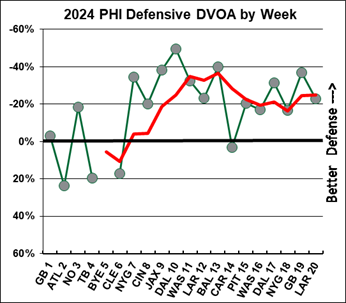
The Eagles rank in the top 10 against every type of receiver… except No. 1 wideouts, where they are 24th at 7.3%. That’s Terry McLaurin, who is fifth this postseason with 58 DYAR and a 28.0% DVOA. He’ll be lined up on the left side nearly every snap, as Kliff Kingsbury hates moving his wideouts around. That means he’ll be lined up against Quinyon Mitchell, because Vic Fangio hates moving his cornerbacks around even more! Mitchell hurt his shoulder early against the Rams and did not return, but he’s been practicing in full and says he has no limitations for Sunday.
Mitchell shut down McLaurin in the first matchup, covering him on 20 snaps and never being targeted, despite Washington’s most effective pass plays all season being to the left. But McLaurin won the second matchup, with a couple big catches including a second-quarter touchdown where McLaurin just accelerated past him and left him in the dust. At the same time, Kingsbury seemed to be aware Mitchell was a problem, as McLaurin spent more time in the slot in Week 16 then he had in any game since 2021 – an attempt to get him off of Mitchell, perhaps? If it was, it didn’t particularly work. While McLaurin caught all three targets against players other than Mitchell, they went for just 18 yards. It’ll be Mitchell versus McLaurin deep on the left all game long, perhaps the most interesting individual matchup of the game.
SPECIAL TEAMS
The Eagles are sort of mediocre everywhere on special teams, ranking between 10th and 23rd in all five aspects. They did have some trouble stopping Washington on kickoff returns in Week 16, but they’ve since switched from Braden Mann to Jake Elliott, so that’s less relevant. It is worth noting that Elliott missed at least one kick in each of Philadelphia’s last three games, and he’s only 1-for-7 on kicks longer than 50 yards, but a mark of -2.9 points vs. expectation on field goals and extra points is merely bad and not an utter disaster. Still, stick a pin in it.
The Commanders rank ninth in special teams DVOA, but their individual elements are all over the shop. They’re second in kick returns, with Austin Ekeler averaging 31.3 yards per kick and Washington leading the league in field position after kickoffs. They’re seventh in punting, with Tress Way having just two touchbacks on the year. But they’re 25th on punt returns, where neither Olamide Zaccheaus nor Jamison Crowder have made a dent. And they’re 26th on field goals, now on their fourth kicker of the year in Zane Gonzalez If there’s a big special teams play, for good or for ill, it’s more likely to come from Washington.
OUTLOOK
The Eagles are the better team. At full strength, they should be able to end the Commanders’ Cinderella story here, running over them and bowling their way to their second Super Bowl appearance in four years. Washington’s defense is a significant liability, and the power of Philadelphia’s offensive line should be able to push past them. Washington’s win over Philadelphia in December was fueled by a backup quarterback, and even then they only managed to squeak past the Eagles. If Hurts and company are even at 80%, the Eagles should have a comfortable win on their hands.
Then again, it’s almost always too early to call ballgame on the Commanders this season. They have made a habit of thrilling finishes, late-game heroics, and clutch decision making all season long. They’re a better team than they were when Philadelphia beat them earlier in the season, and they are definitely in the better form going into this game. If you’re picking the game based on no object permanence whatsoever, the Commanders are your pick.
But the Commanders can’t keep winning on the last play forever. Walking that tightrope week in and week out is impressive, but the law of averages is going to come for them eventually. Assuming the Eagles look even somewhat close to their regular season selves on offense, I foresee them running the clock out in the fourth quarter and beating a rookie quarterback in the NFC Championship Game for the second straight time. Just don’t hurt Daniels’ elbow this time so the game is watchable, please.








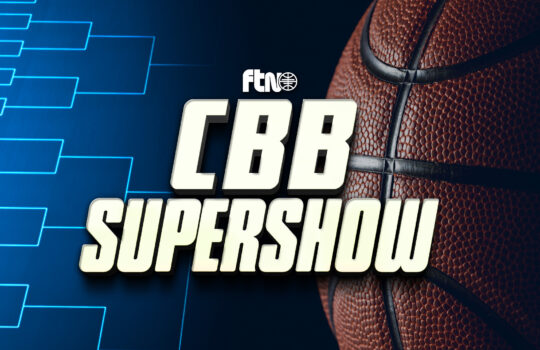




















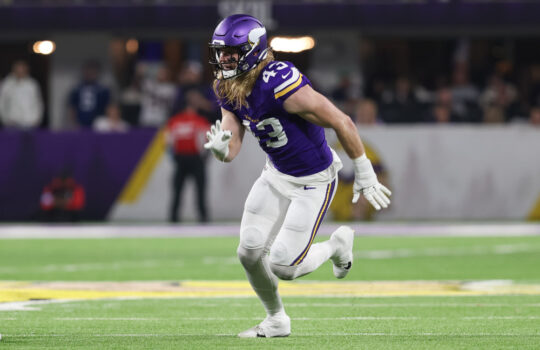



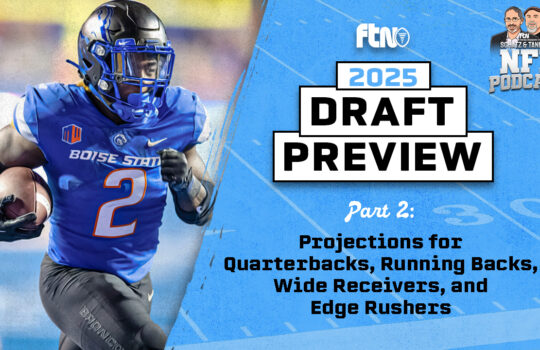

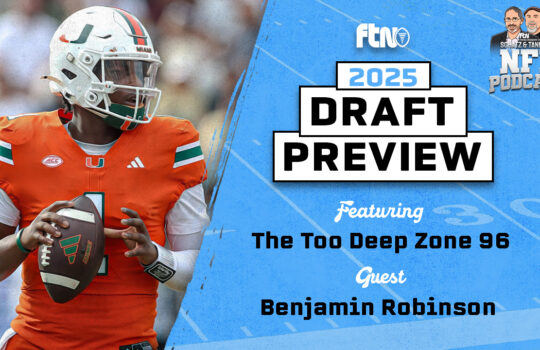
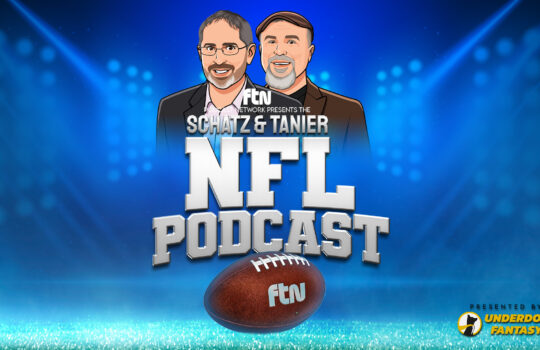




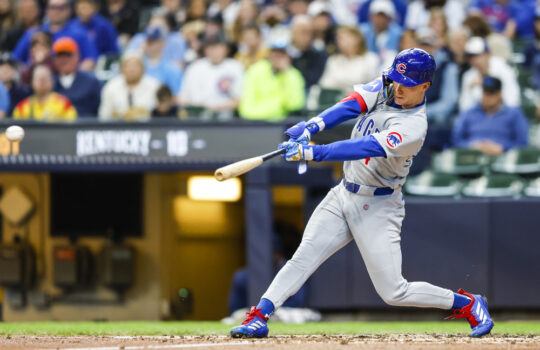



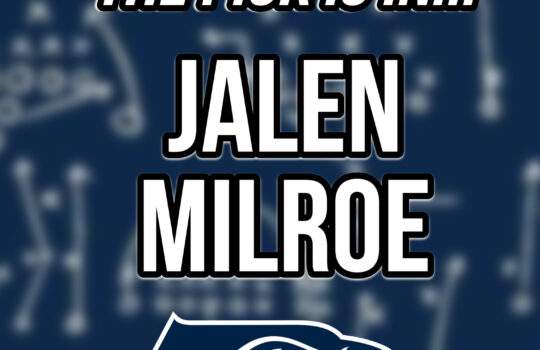

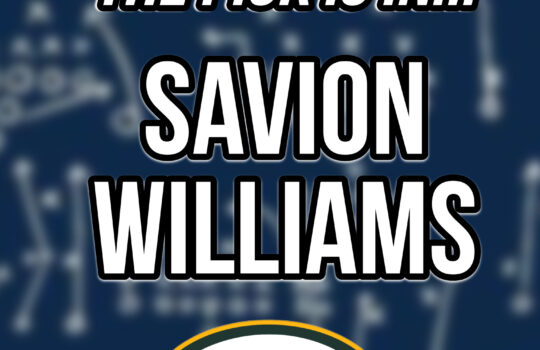
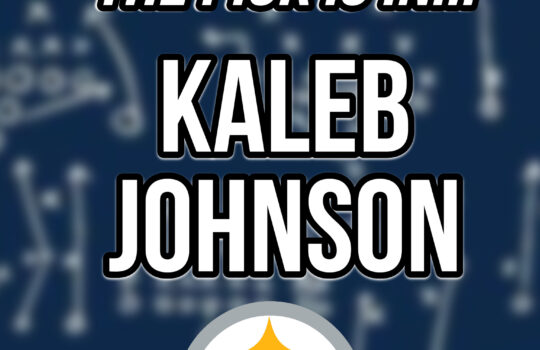

 New York Jets
New York Jets  New England Patriots
New England Patriots 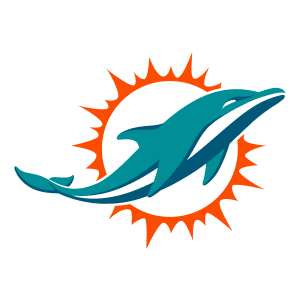 Miami Dolphins
Miami Dolphins  Buffalo Bills
Buffalo Bills  Pittsburgh Steelers
Pittsburgh Steelers  Cleveland Browns
Cleveland Browns  Cincinnati Bengals
Cincinnati Bengals  Baltimore Ravens
Baltimore Ravens 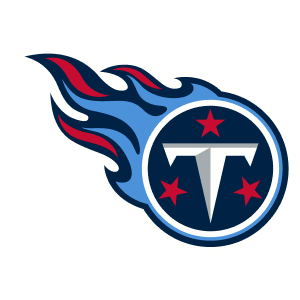 Tennessee Titans
Tennessee Titans  Jacksonville Jaguars
Jacksonville Jaguars  Indianapolis Colts
Indianapolis Colts  Houston Texans
Houston Texans  Las Vegas Raiders
Las Vegas Raiders  Los Angeles Chargers
Los Angeles Chargers  Kansas City Chiefs
Kansas City Chiefs  Denver Broncos
Denver Broncos  Washington Commanders
Washington Commanders  Philadelphia Eagles
Philadelphia Eagles  New York Giants
New York Giants  Dallas Cowboys
Dallas Cowboys  Minnesota Vikings
Minnesota Vikings  Green Bay Packers
Green Bay Packers 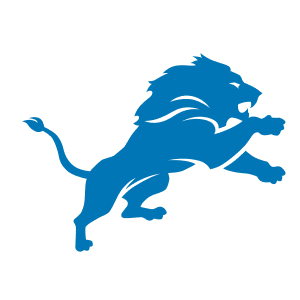 Detroit Lions
Detroit Lions  Chicago Bears
Chicago Bears 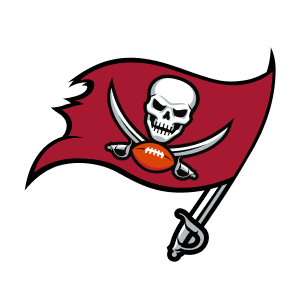 Tampa Bay Buccaneers
Tampa Bay Buccaneers  New Orleans Saints
New Orleans Saints 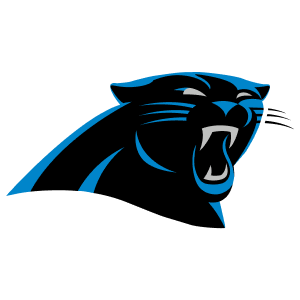 Carolina Panthers
Carolina Panthers 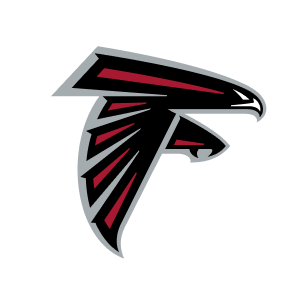 Atlanta Falcons
Atlanta Falcons  San Francisco 49ers
San Francisco 49ers  Seattle Seahawks
Seattle Seahawks  Los Angeles Rams
Los Angeles Rams  Arizona Cardinals
Arizona Cardinals 

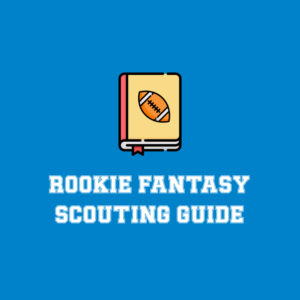






 Boston Celtics
Boston Celtics  Brooklyn Nets
Brooklyn Nets  Philadelphia 76ers
Philadelphia 76ers  New York Knicks
New York Knicks  Toronto Raptors
Toronto Raptors  Chicago Bulls
Chicago Bulls  Detroit Pistons
Detroit Pistons  Milwaukee Bucks
Milwaukee Bucks  Cleveland Cavaliers
Cleveland Cavaliers  Indiana Pacers
Indiana Pacers  Orlando Magic
Orlando Magic 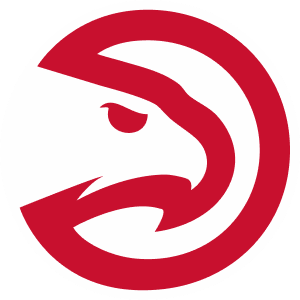 Atlanta Hawks
Atlanta Hawks  Charlotte Hornets
Charlotte Hornets  Miami Heat
Miami Heat  Washington Wizards
Washington Wizards  Denver Nuggets
Denver Nuggets  Minnesota Timberwolves
Minnesota Timberwolves  Oklahoma City Thunder
Oklahoma City Thunder  Portland Trail Blazers
Portland Trail Blazers  Utah Jazz
Utah Jazz  LA Clippers
LA Clippers  Golden State Warriors
Golden State Warriors  Los Angeles Lakers
Los Angeles Lakers  Phoenix Suns
Phoenix Suns  Sacramento Kings
Sacramento Kings  Dallas Mavericks
Dallas Mavericks  Houston Rockets
Houston Rockets  Memphis Grizzlies
Memphis Grizzlies  New Orleans Pelicans
New Orleans Pelicans  San Antonio Spurs
San Antonio Spurs 









